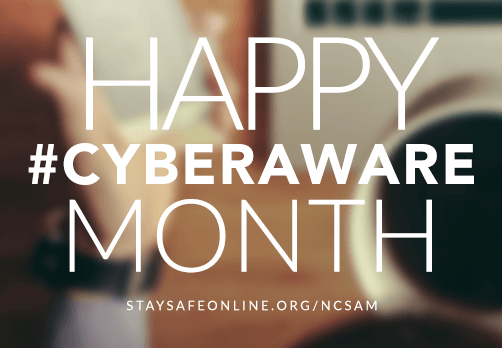Whether you’re a casual browser, a website owner or an IT professional (or all three!), cybersecurity is something you should be aware of. While the web brings us a plethora of wonderful things, it brings with it risks that range from annoying phishing attempts to more sinister ransomware attacks. Keeping yourself and your data safe online is such an important part of today’s digital world, which is why we’re shining the spotlight on National Cybersecurity Awareness Month, which takes place every October.
Created by the Department of Homeland Security in partnership with the National Cyber Security Alliance, National Cybersecurity Awareness Month is aimed at American users but brings with it lessons every user can benefit from, wherever you are in the world.
At AWESEM we take cybersecurity extremely seriously, offering support and maintenance services to keep your website protected against security risks. We also work with carefully selected partners to ensure that every website we work on has robust security measures in place: WP Engine are our number one pick for WordPress hosting services and their security features are second to none.
So what can you do to improve your website’s security? Over the years we’ve written numerous articles about online safety and WordPress security, so have a read through the selection below to pick up a few ideas today:
How to Make Your WordPress Site Secure (covering two step authentication, secure passwords, security plugins and back ups)
WordPress Backup Solutions (covering a list of WordPress back up plugins and hosting providers who offer the service)
World Password Day (covering four steps to creating secure passwords)
Four Quick WordPress Security Tips (covering username security, the importance of clean environments and a reminder to keep your website and plugins updated)
Professional Website Security (covering the importance of professional website security, a guest post from Sucuri’s digital marketing manager)
For more information about National Cybersecurity Awareness Month and to find out more about how you can protect yourself online, head over to the Department of Homeland Security.



